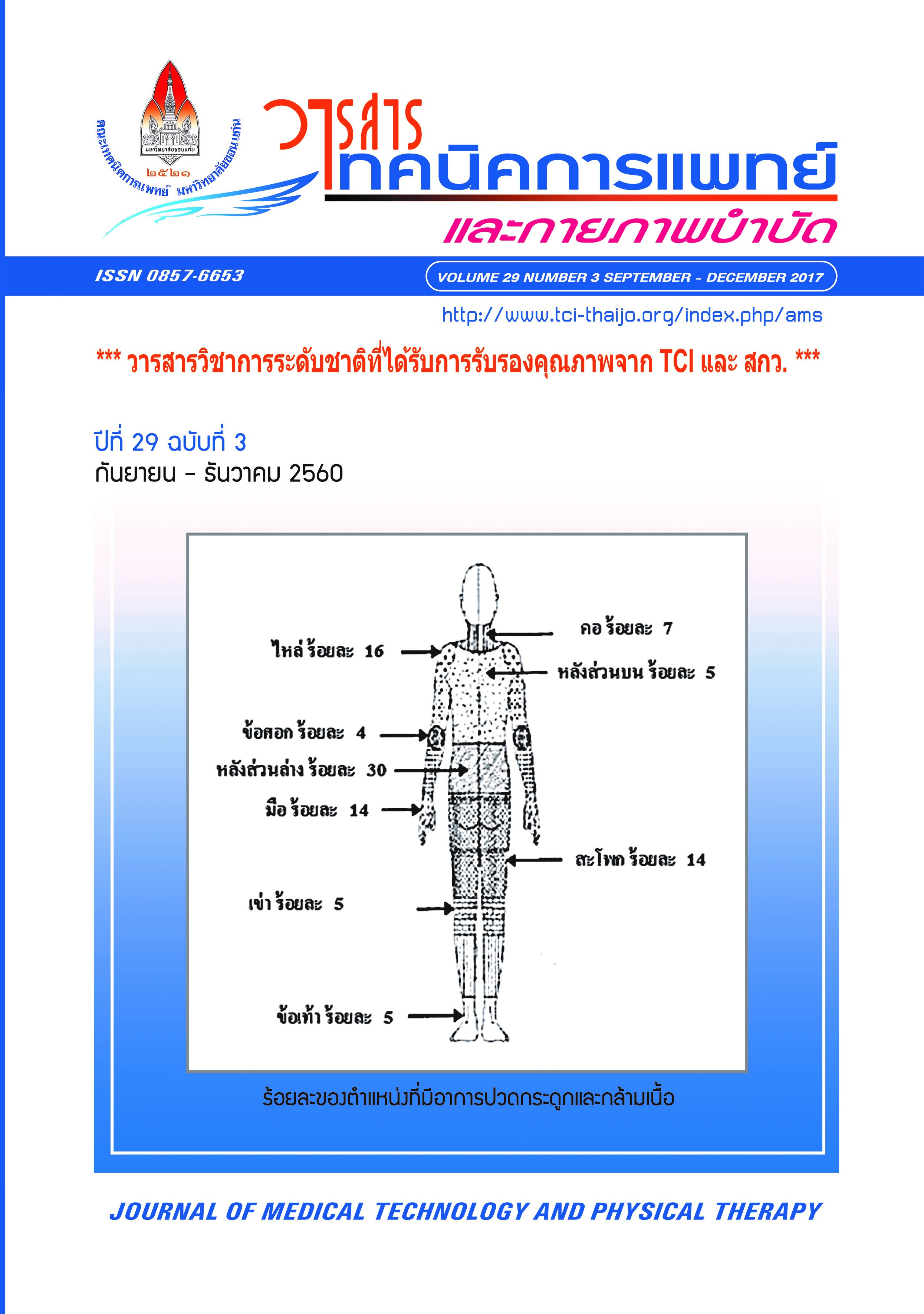Evaluation of the Active Melioidosis DetectTM Rapid Test for the rapid diagnosis of melioidosis
Main Article Content
Abstract
Melioidosis is a severe infectious disease caused by Burkholderia pseudomallei. The organism is commonly found in soil and stagnant water. Septicemic form of melioidosis is a life-threatening infection. Isolation of B. pseudomallei from clinical specimens is the gold standard for the diagnosis of melioidosis. The drawback is that culture is time-consuming and can take 3-5 days before results can be obtained. This study aims to evaluate the Active Melioidosis DetectTM Rapid Test based on the principle of immunochromatography to detect capsular polysaccharide (CPS) produced and secreted by the B. pseudomallei using sera from melioidosis (N=51) and non-melioidosis patients (N=49). The Rapid Test was performed on both the direct or untreated sera and sera pretreated with proteinase K. The results showed that the sensitivity of the Rapid Test on untreated sera and sera pretreated with proteinase K enzyme was 21.57% and 68.63%, respectively, while the specificity was 98.18% for both type of sera. Compared with the culture method, the agreement level was fair (K = 0.21) for untreated sera and substantial (K = 0.68) for pretreated sera, indicating the Active Melioidosis DetectTM Rapid Test has potential for laboratory diagnosis of melioidosis when pretreated sera are used.


